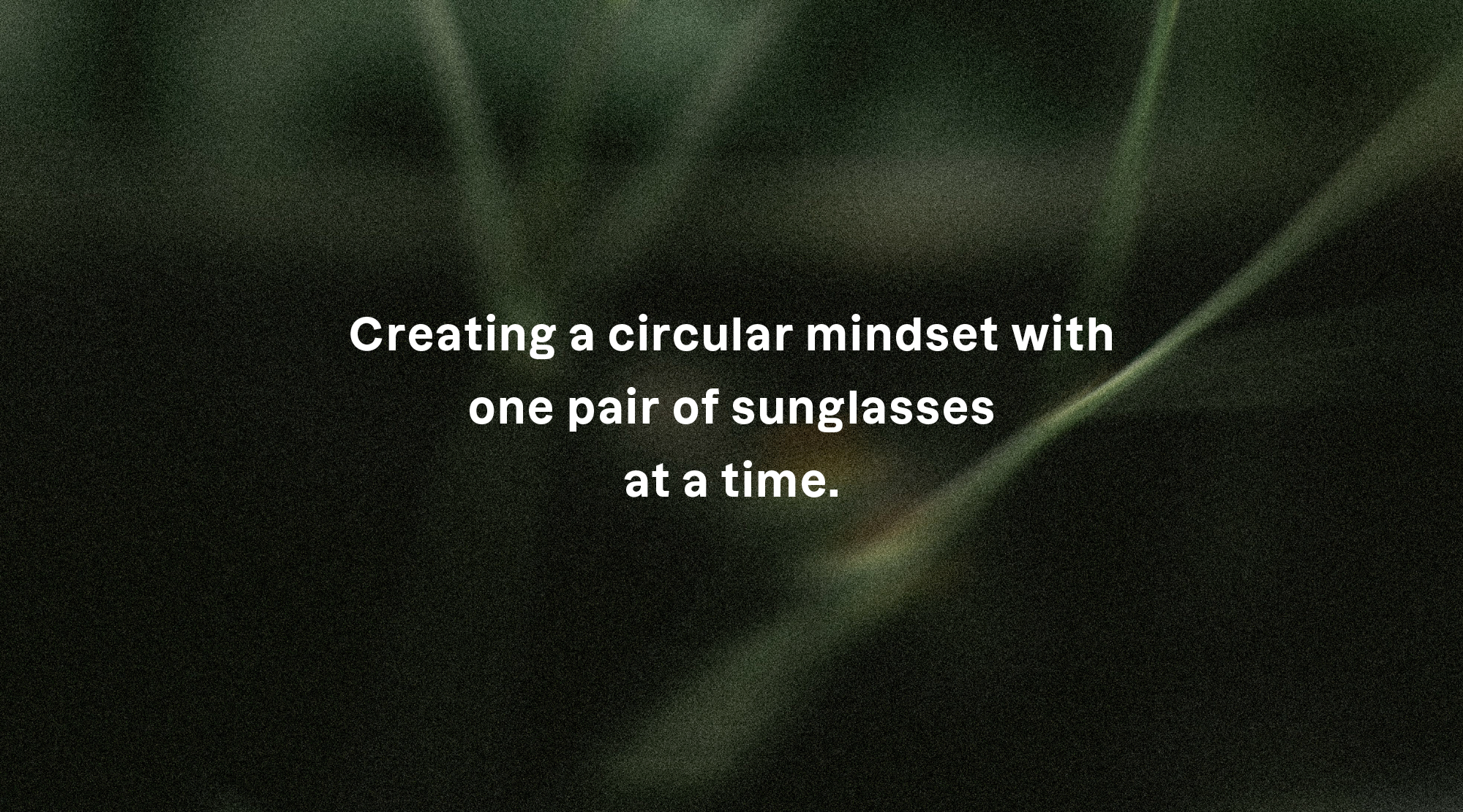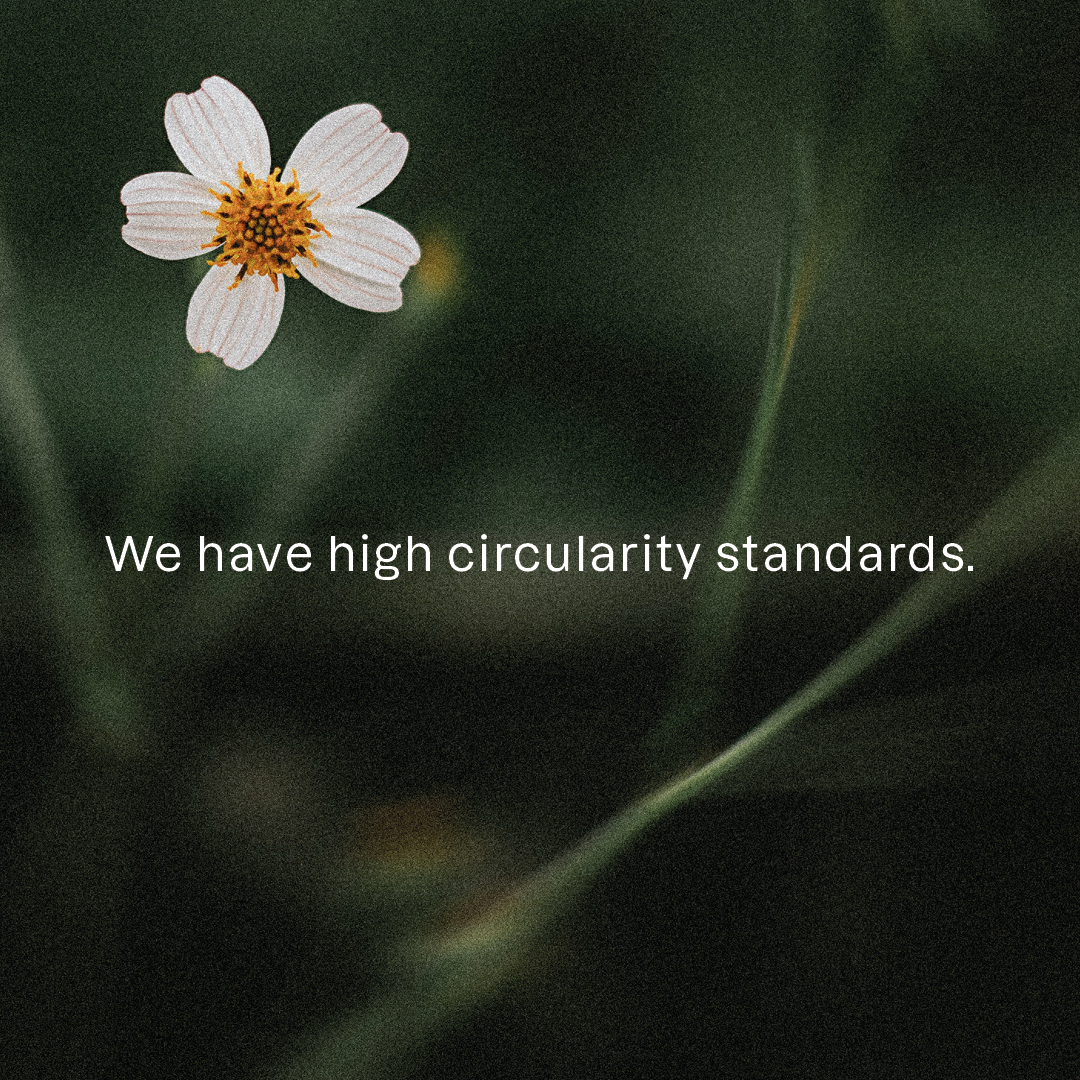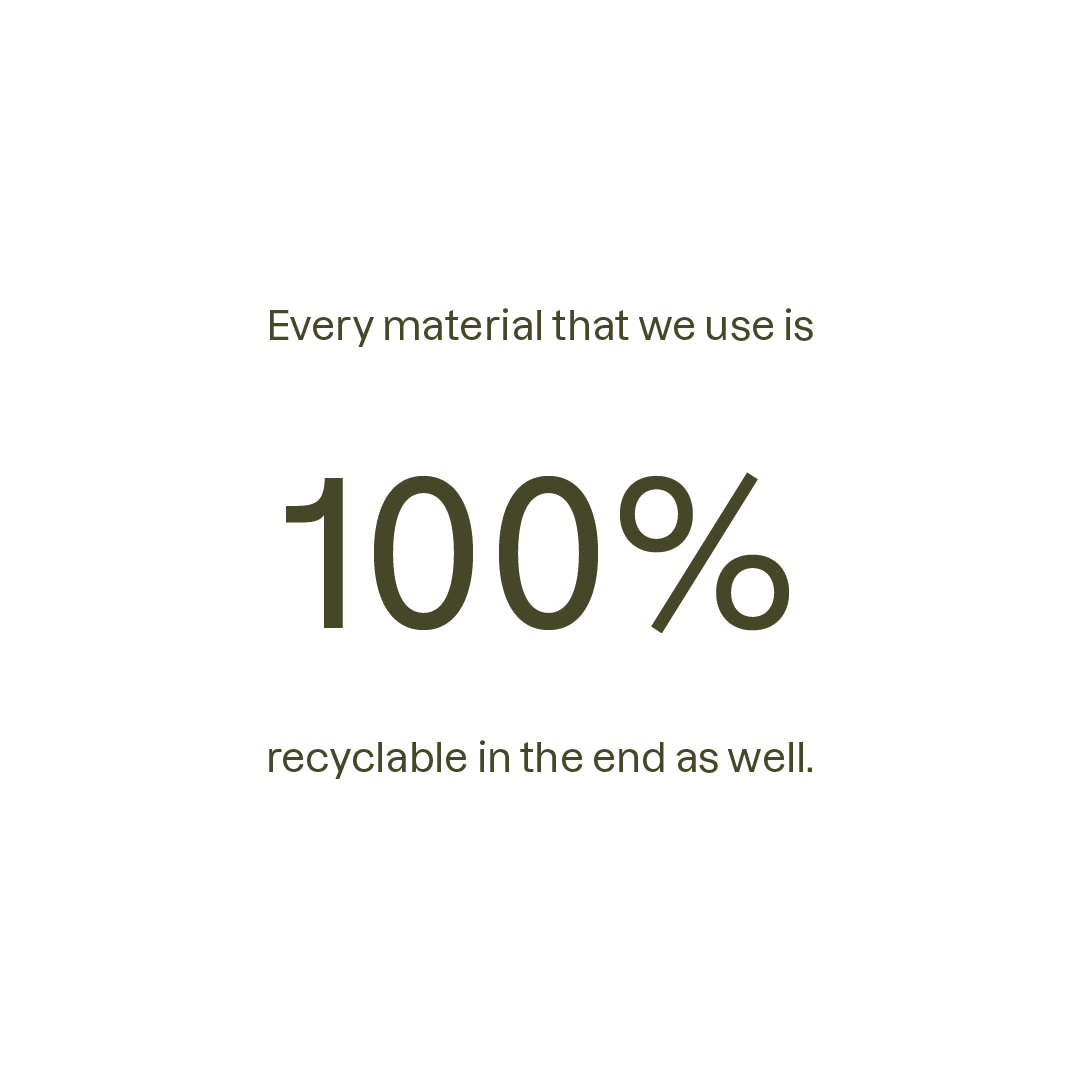
At Yuma Labs, we are committed to doing our part in protecting the planet. We understand that the fashion industry can have a significant impact on the environment and we are determined to minimize that impact. That is why we use only certified recycled and bio-based materials in the production of our products.


The materials that we currently work with:
Acetate Renew
Eastman Acetate Renew is a mostly bio-based material made from certified sustainable wood pulp and recycled waste plastics, instead of fossil-based resources. It contains 27% recycled contents (according to ISCC+), 43% bio-based cellulose (according to FSC/PEFC) and 30% traditional plasticiser (BPA free). It has the same look, feel, and performance as traditional acetate of the highest quality, but results in an eyewear frame with a much lower carbon footprint - up to a third lower than the traditional manufacturing process.
Molecular recycling is a pioneering technology used to make Acetate Renew. It breaks down hard-to-recycle plastics to the molecular level, forming new acetate of the same quality as traditional material. This circular economy innovation actively diverts plastic waste from landfills, incinerators, and oceans.
Eastman is a leading global specialty materials company that has been at the forefront of innovation in various industries. One notable contribution to sustainable practices is their development of Acetate Renew material. This cutting-edge material is part of Eastman's commitment to circularity and environmental responsibility.
Bio-Acetate
M49 Bio-Acetate, developed by Mazzucchelli, represents a noteworthy advancement in the realm of materials, particularly in the field of eyewear. Bio-based means the natural and renewable origin of the material. M49 has been evaluated through this analysis and the attributable to natural origin reaches 68% (according to ASTM D6866). (There may be slight deviations due to formulation or process). M49 comes from natural wood fibers, cotton seeds, and wood pulp.
In fact, M49 is made of cellulose acetate and a plasticizer of vegetable origin. This material has the same look, feel, and performance as conventional acetate.
Mazzucchelli, a renowned Italian company with a rich heritage in producing high-quality acetate sheets, has introduced M49 as a premium material for eyeglass frames. Characterized by its exceptional durability, vibrant colors, and distinctive patterns, the M49 exemplifies Mazzucchelli's commitment to craftsmanship and innovation.
ECONYL®
Nylon waste, otherwise polluting the Earth, is transformed into ECONYL® regenerated nylon. It’s the same as brand-new nylon and can be recycled, recreated, and remolded again and again. That means you can create new products and buy new products without having to use new resources.
ECONYL®, a pioneering company in sustainable materials, has made significant strides in environmental responsibility with its recycled nylon. This innovative material, derived from regenerated waste such as discarded fishing nets, fabric scraps, and industrial plastic, underscores Econyl's commitment to reducing the environmental impact of nylon production.
The process employed by ECONYL® not only diverts significant amounts of waste from landfills and oceans but also results in high-quality recycled nylon that performs on par with virgin nylon.
Recycled PET
Recycled PET, or polyethylene terephthalate, is a type of plastic that is commonly used in a variety of products, including bottles and packaging materials.
We use 100% recycled PET (according to GRS) to create sunglasses, cleaning cloths, and pouches. With this, we are not only reducing the amount of new plastic that needs to be produced but also keeping existing plastic out of landfills and oceans.
Recycled Fishing Nets
From fishing nets floating in our ocean to sunglasses, protecting the eyes and the ocean.
Old and abandoned fishing nets (ghost nets) are collected and cleaned to then be fully recyclable via molecular recycling (according to GRS). With this recycled material, the sunglasses can be recycled all over again without ever losing their quality.
This product is part of the process that helps clean up the world’s oceans. Each year, 600,000 metric tons of fishing nets end up in the world’s oceans, trapping dolphins, seals, and smaller fish. These abandoned nets drift with strong currents and scrape the bottom surface, destroying the coral reefs that are essential to the survival and health of both the world’s oceans and human beings.
Recycled Acrylic
Acrylic, a widely used material in various industries, often poses environmental challenges due to its traditional production methods. However, Madre Perla has embraced a forward-thinking approach by introducing recycled acrylic, a material sourced from post-consumer and post-industrial waste.
Recycled acrylic or rPMMA has the unique ability to be endlessly recycled without losing its properties, making it an ideal material for a circular vision. Madreperla's acrylic is 100% recycled and recyclable (according to GRS+).
Bio-based PA11
Polyamide 11, or PA11, is a versatile polymer widely used in various applications, ranging from automotive components to consumer goods. What sets Arkema's bio-based PA11 apart is its innovative production process that utilizes plant-based feedstocks, such as castor beans.
This groundbreaking approach not only reduces reliance on fossil fuels but also contributes to lowering the overall carbon footprint of the material. This makes it a high-performance polymer of 100% renewable origin. For 70 years, it has been a trusted source of performance in highly demanding applications, renowned for its performance and durability.
FSC® certified paper
Our commitment to sustainability is reflected in the choice of FSC® certified paper for all our packaging materials. FSC, or Forest Stewardship Council, certification ensures that the paper used in our packaging comes from responsibly managed forests. This stringent certification process considers environmental, social, and economic factors, guaranteeing that the forests providing the raw materials are preserved, and their ecosystems are protected.
By exclusively using FSC® certified paper, we prioritize the conservation of biodiversity, support local communities, and promote responsible forestry practices. This approach underscores our dedication to minimizing the environmental impact of our packaging, aligning our values with the global movement towards more eco-friendly and ethical business practices.
Our commitment to sustainability goes beyond material choice. All of our materials meet strict environmental standards. We are certified with EMS ISO 14001, ISCC+, GRS+, FSC, and PEFC, ensuring the highest standards for environmental management, social responsibility, and sustainable sourcing. We continuously strive to improve our practices each year by exploring and incorporating more sustainable and circular materials. This demonstrates our commitment to responsible and ethical business practices in all aspects of our operations.
In the past few months, working alongside Ethy has played a crucial role in improving the credibility of our sustainability efforts.
We are thrilled to share the introduction of our new sustainability claims, showcasing our continuous dedication to being more environmentally responsible. Read more about our sustainability verifications on our brand profile on Ethy.

